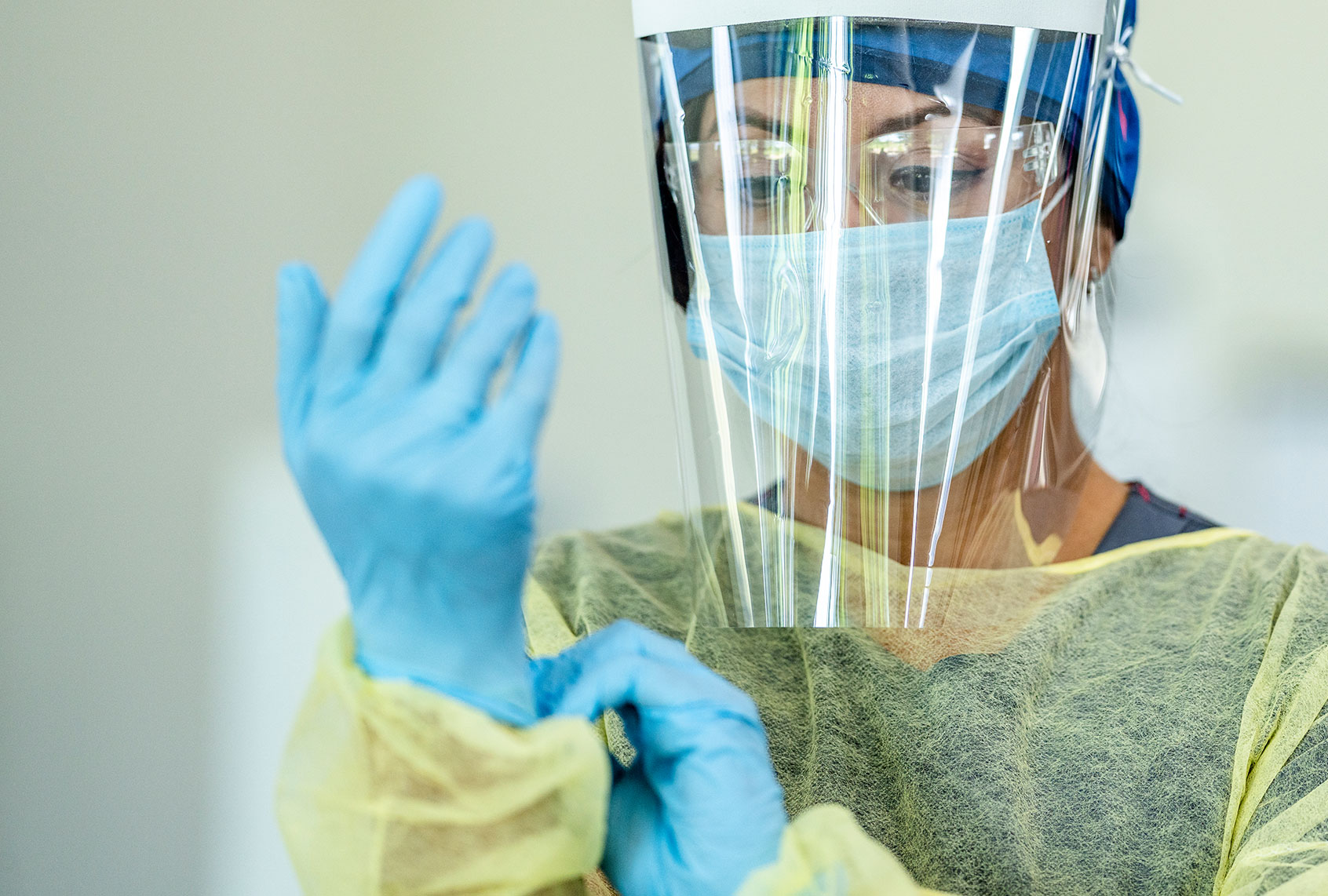In Weird Al’s 1985 music video parody “Like a Surgeon” (which riffed off of Madonna’s song “Like a Virgin” from the previous year), the melodious funnyman plays a surgeon who signals his medical incompetence by — among many, many other things — not wearing a mask while he operates.
Obviously, a trustworthy surgeon would don a facemask during surgery. (They would also refrain from performing magic tricks and scarfing down sandwiches, as Dr. Weird Al does.) Yet curiously, while wearing a facemask is ideal for preventing the spread of germs, it is not effective at conveying trust in patients, according to a new study.
Clearly, it’s crucial for patients to be able to trust their surgeons — they quite literally hold patients’ lives in their hands — and that is why this recent study published in the journal JAMA Surgery is so important. The study found that when patients cannot see their surgeon’s entire face due to masking requirements, they find it more difficult to trust and understand them.
Want more science stories in your inbox? Subscribe to Salon’s weekly newsletter The Vulgar Scientist.
To conduct this study, a team led by Dr. Muneera Kapadia from the University of North Carolina School of Medicine analyzed how 200 patients responded to professionals from 15 surgeons’ clinics across seven subspecialties. They found that, although eight out of 15 surgeons chose a standard face covering over a clear mask, patients overwhelmingly felt more comfortable when their surgeons’ masks allowed them to see their entire face. Surgeons who wore clear masks received higher marks for displaying empathy (99% to 85%), establishing trust (94% to 72%) and offering understandable explanations (95% to 78%).
“At beginning of pandemic I had a patient say, ‘Dr. Kapadia, it’s odd you’ve taken out a big part of my colon and I don’t even know what you look like,'” Kapadia remarked in a press release. “It made me realize we don’t have much information on how masks are effecting surgeon-patient communication and relationships.”
Kapadia spoke with Salon about her findings.
“I don’t know that the clear mask is the solution, but we definitely identified a problem,” Kapadia explained, noting that she is not sure that surgeons preferred the opaque masks so much as they had pragmatic reservations about the effectiveness of clear ones.
“It’s more that they did not prefer clear masks, and the issues cited were that the clear mask had issues with fit and fogging,” Kapadia told Salon. “Some of the surgeons questioned how safe they were in terms of protecting against COVID-19.”
She emphasized that, from a psychological perspective, the study found that patients struggle when they cannot see their surgeon’s face and benefited when they could.
“I think they could hear better,” she observed. “I think they can read expressions better. I think some of those things that play into trust. I think all of those things, they all build up to form a better connection with your surgeon. Those are the underlying things that lead to trust. “
There have been a number of studies which explore the psychological consequences of mask-wearing. In a paper published in International Journal of Environmental Research and Public Health last year, researchers found that people often have an instinctive aversion to wearing masks because they feel as if their autonomy and freedom are being taken away from them. It also noted that the politicization of mask wearing and the mixed messages being given out from various trusted institutions created a sense of confusion about whether it was necessary to wear masks.
An article published last year during the early months of the pandemic also identified a stigma associated with wearing masks.
“Wearing face masks has been associated with the stigma of being sick, and normally healthy people do not need to wear face masks to prevent diseases,” explained the researchers behind an article published in the journal General Psychiatry. “This stigma might need to be changed due to the threat of COVID-19.”
There is no question that wearing a mask is essential to limit the spread of SARS-CoV-2, the virus responsible for COVID-19. Studies have found that states with mask mandates had slower coronavirus growth rates; another study of multiple countries found that regions with government policies or social norms of wearing masks had lower COVID-19 death rates. Likewise, studies have found that those who wear masks regularly will have less severe COVID-19 symptoms if they do contract the virus.

